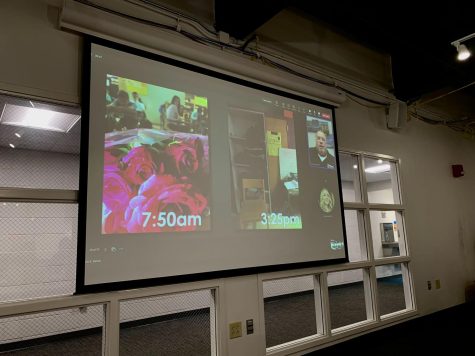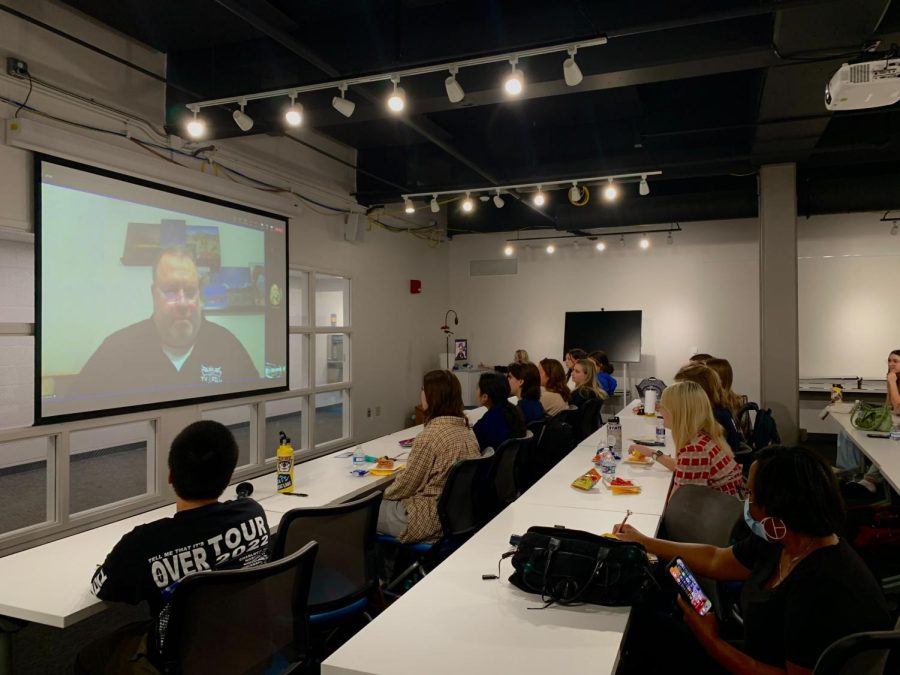“Let them tell their story”: Parkland survivor discusses media response
Dozens attended Eric Garner’s discussion regarding the media’s response to mass shootings.
Stephanie Smith, a professor in the School of Media and Journalism, opened Tuesday’s virtual discussion with Parkland survivor Eric Garner with a reminder, “we are Kent State and we come together to have provocative conversations.”
Dozens of students and faculty members filled the May 4 Visitors Center Reflection Gallery to hear the broadcast journalism teacher’s personal account of the deadliest high school shooting in United States history, 17 people were killed at Marjory Stoneman Douglas High School in Parkland, Florida, and learn from the media response it garnered.
Garner opened the discussion with a presentation detailing the timeline of the shooting as he experienced it.

“This is how I got started, on the left hand side, there’s the roses,” he said, displaying a side by side picture of roses a student left on his desk that Valentine’s morning and the barricaded door in his classroom. “And that’s how my day, by 3:25, looked like. That’s my chair, I was very clear with every person in the room, that’s my chair, it’s by the door and if something happens I go first.”
Garner, who spent more than an hour shielding 54 students in his classroom, told those in attendance that the media attention put on the school afterward was difficult and shared that he was asked to go on Anderson Cooper’s show days after the shooting. He canceled when he saw a segment from the show air an interview with a distraught mother whose daughter was killed.
“Instead of being humane they go in and they exploited,” he said. “And right when I watched that, I looked at my son and said ‘I’m not going on Anderson Cooper.’”
As a broadcast journalism teacher he understood there was a story to tell, but felt that major media outlets had neglected the humanity of those affected by the shooting. When he got back to Marjory Stoneman Douglas he wanted to allow his students, “aspiring journalists who found themselves at the center of what’s likely the most difficult story of their lives,” to take charge of their own narrative. The result of this was an award winning student-produced documentary that told a story of perseverance and the need for change, Garner said.
Letting his students control their own narrative is central to his core mission of changing the way mass shootings are covered in America.
“I don’t like it when journalists become full time activists, but I think there’s a beautiful fine line of letting people tell their story and you’re not trying to enhance it,” he told Jenna Gilbreath, a communication studies major who asked how journalists can better focus on the people they cover. “Let them tell their story.”
Alton Northup is a staff reporter. Contact him at [email protected].

Alton is the news director for The Kent Stater and KSTV. A senior journalism major, this is his eighth semester with The Kent Stater. He previously served...



